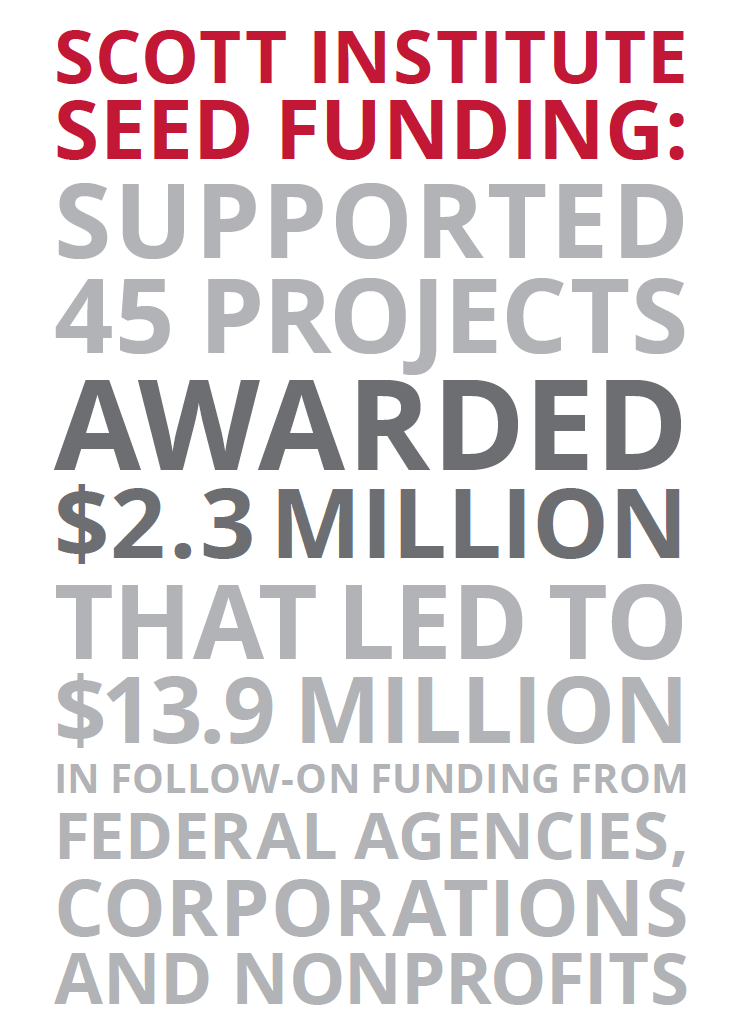![]()
Scott Institute Seed Grants Fuel Energy Research
By Amanda King
Funding from the Scott Institute has catalyzed new research initiatives ranging from helping people assess the climate risks of hydroelectric projects to finding a new way to produce semiconductors for electronic devices, including electric cars.
The Scott Institute’s Seed Grants for Energy Research Program supports faculty research in areas such as energy sources, production, policy and more. CMU professors can receive up to $75,000 for an 18-month seed project. The objective is to allow faculty members to collect initial data on a project for which they will subsequently apply for external funding.
Since 2013, the annual program has funded six rounds of applications and 44 research teams, yielding 45 projects from 179 proposals. The Scott Institute, the EQT Foundation and the Richard King Mellon Foundation have provided over $2.3 million in funding. The EQT Foundation has contributed significantly to the program since 2015 to seed new research into natural gas-related issues.
“One impressive aspect of the responses we’ve received from the six calls for proposals is that they’ve spanned a wide range of topics, from developing advanced technologies, to human behavior and improving public policy,” said Scott Institute Co-Director Andrew Gellman, who manages the seed grant program. “Such broad interdisciplinary interest and strength is probably Carnegie Mellon’s greatest strength in energy research and education.”
As a result of the Scott Institute’s seed grants, researchers have received $13.9 million of external funding from federal agencies, corporations and nonprofits. New to the 2018 round of funding was support for much-needed repairs and upgrades to research equipment. The 2018 Instrumentation Repair Program allows professors to have equipment replaced, repaired and in some cases moved to different locations to increase collaboration.
“Before we introduced the Instrumentation Repair Program, there was no existing maintenance mechanism for equipment that these researchers rely on,” said Jay Whitacre. “This program allows our researchers to continue their pioneering work in energy research and education here at Carnegie Mellon.”